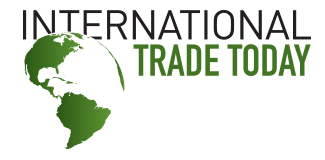USTR May Reopen Section 301 Exclusions, Drop Some Products After Review, Retailers Say
NEW YORK -- Apparel industry lobbyist David Spooner, speaking at the U.S. Fashion Industry Association annual conference, said employees of the Office of the U.S. Trade Representative have indicated to him that the office "might actually sunset some of the tariffs," and that importers will be able to apply for a new product exclusion. "Hopefully this is the case," he added.
Spooner, USFIA's Washington counsel and a partner at Barnes & Thornburg, said he thinks an announcement could come as soon as this month.
Spooner, USFIA President Julia Huges and John Pelligrini, USFIA customs consultant, were giving a Washington policy update to conference attendees.
Pelligrini responded, "I’m a little less optimistic ... I can’t imagine they’re going to do anything good with China during an election year. Biden can’t be perceived in any respect as pro-China."
Spooner also spoke about the possibility that lists 3 and 4 Section 301 tariffs could be thrown out in court, as the case goes through the appellate stage.
"The plaintiffs have a better chance, I think, than the water cooler talk suggests," he said, as the appeals court doesn't have to give deference to the Court of International Trade. He said a decision may come next spring.
Spooner noted that the National Council of Textile Organizations has been arguing that the $800 de minimis, and the direct-to-consumer apparel sales from China covered by de minimis, are a way for manufacturers to avoid scrutiny of products made with cotton grown in Xinjiang.
An audience member asked if changes to de minimis could pass Congress.
Spooner replied, "I could see something passing the House -- chances are low in the Senate."
Hughes said it's really on CBP to get a better handle on screening small packages, though she thinks it's more an issue of keeping out fentanyl than it is related to apparel.
"We’ve had a pilot program for several years -- it’s frustrating we’re still in a pilot phase," she said.
With regard to Congress, she said, "They may feel they have to do something, but I don’t think they’re going to eliminate Section 321 for any type of product."
Pelligrini said flatly that no changes to de minimis are possible in Congress. "Amazon," he said. "They have a lot of power."
A poll of attendees found that forced labor is at the top of their regulatory or legislative concerns, then the 2024 elections, and then a possible government shutdown.
There is a continuing resolution extending appropriations through Nov. 17 -- nine days from now. Spooner said he's surprised he's not seeing more in the press about the possibility the government shuts down the next day. The new House speaker, Mike Johnson, rose to power because a small group of Republicans, aided by all Democrats, ousted former Speaker Kevin McCarthy after he passed the continuing resolution with more Democratic votes than Republican support.
Spooner noted that Johnson, R-La., has been in Congress less than six years. "I can’t see Mike Johnson having the political space to do what McCarthy did to keep the government open," he said.
After the shutdown concerns, attendees ranked increasing incentives to import from the Western Hemisphere.
Hughes noted this is one of the few policies where NCTO and USFIA are in agreement. She said that Sen. Bill Cassidy, R-La., and Sen. Michael Bennet, D-Colo., soon will release a new version of their Americas Act, which includes incentives for expanding business with Western Hemisphere countries that have free trade agreements with the U.S.



